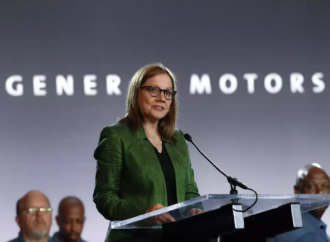From Garage to Global Icon: Steve Jobs’ Journey of Unyielding Innovation.
Steve Jobs, born on February 24, 1955, in San Francisco, California, was a visionary entrepreneur who revolutionized the technology industry. His journey to success was marked by innovation, resilience, and a relentless pursuit of excellence.
Jobs was adopted by Paul and Clara Jobs shortly after birth. From a young age, he exhibited a keen interest in electronics and gadgets. This passion led him to attend lectures at the Hewlett-Packard Company in Palo Alto, where he later worked as a summer intern. After graduating from high school, Jobs enrolled at Reed College in Oregon but dropped out after six months, continuing to audit classes that interested him, such as calligraphy, which would later influence Apple’s typography.

In 1974, Jobs returned to California and joined the Homebrew Computer Club, where he met Steve Wozniak, an engineering wizard. Recognizing the potential of Wozniak’s designs, Jobs convinced him to start a business. In 1976, they co-founded Apple Computer, Inc. in Jobs’ garage, financing their venture by selling Jobs’ Volkswagen Microbus and Wozniak’s HP calculator.
Their first product, the Apple I, was a modest success, but it was the Apple II, released in 1977, that made a significant impact. The Apple II was one of the first highly successful mass-produced microcomputers, propelling Apple into a leading position in the burgeoning personal computer market. Jobs’ insistence on a user-friendly design and innovative marketing strategies played a crucial role in its success.

In 1980, Apple went public, and Jobs became a multimillionaire. However, as the company grew, so did internal conflicts. The launch of the Macintosh in 1984 was a major milestone. It featured a graphical user interface and a mouse, making computers more accessible to the average person. Despite the initial excitement, sales didn’t meet expectations, leading to power struggles within Apple. In 1985, Jobs was ousted from the company he had founded.
Undeterred, Jobs founded NeXT Inc., a computer platform development company targeting the higher education and business markets. Although NeXT never achieved commercial success, its technology was highly advanced and laid the groundwork for future innovations. Concurrently, Jobs acquired a small division of Lucasfilm in 1986, which he transformed into Pixar Animation Studios. Under his leadership, Pixar produced “Toy Story” in 1995, the first entirely computer-animated feature film, which was both a critical and commercial success. Pixar’s success cemented Jobs’ reputation as a visionary.

In 1996, Apple acquired NeXT, bringing Jobs back to the company. He was named interim CEO in 1997 and then permanent CEO. Jobs revitalized Apple with groundbreaking products like the iMac, iPod, iPhone, and iPad. His focus on sleek, user-friendly designs and his ability to anticipate consumer needs redefined the tech industry. The introduction of the iTunes Store revolutionized the music industry, and the App Store created a new economy for mobile applications.
Under Jobs’ leadership, Apple became one of the most valuable companies in the world. His approach to business was characterized by a focus on innovation, design, and customer experience. Jobs’ philosophy of integrating hardware and software was instrumental in creating a seamless user experience.

Steve Jobs passed away on October 5, 2011, but his legacy endures. He transformed multiple industries, including personal computing, music, and mobile phones. His visionary approach and pursuit of perfection continue to inspire entrepreneurs and innovators around the globe. Job’s story is a testament to the power of creativity, resilience, and the impact one individual can have on the world.


























Leave a Comment
Your email address will not be published. Required fields are marked with *